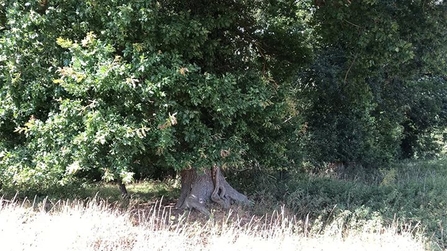The proposed road will link the end of the Northern Distributor Road (NDR) on the A1067 with the A47 near to Easton. It would very likely result in the long-term complete loss of a Special Area of Conservation calibre breeding colony of barbastelle bats, listed as endangered on the IUCN and UK red lists. The bat roosts are protected by law from disturbance and destruction under the Wildlife & Countryside Act and the Habitats Regulations. Additional likely losses are areas of woodland expected to qualify as ancient woodland and permanent damage to two chalk rivers, a globally rare habitat of which the UK holds a significant proportion.
Conservation Officer at Norfolk Wildlife Trust, Mike Jones, says:
"Based on the evidence available, we consider that the proposal would result in the loss of significant and irreplaceable ecological features of national importance for which mitigation and compensation are not feasible. We cannot envisage how it would be possible to proceed with the road and comply with wildlife laws and planning policies, nor provide a net gain for biodiversity as stated by Norfolk County Council. As a result, NWT intends to strongly object to the planning application."

Woodland on the Norwich Western Link route (credit: Iain Robinson)
Chief Executive of Norfolk Wildlife Trust, Pamela Abbott, says:
"We have written to the Department for Transport to urge the Western Link is removed from further consideration. Our recommendation is that the road proposal is stopped at this point. Alternative options for meeting future transport needs that do not contravene multiple wildlife laws must be examined further."
NWT has also written to Norfolk County Council to share its concerns about the protected habitats and species. It highlighted that proposed new tree planting — regardless of scale — cannot replicate the mature woodland roosting habitats used by a significant colony of endangered bats on the route. NWT therefore strongly disagrees with the Council's claim that a net gain for biodiversity can be delivered in this context.
